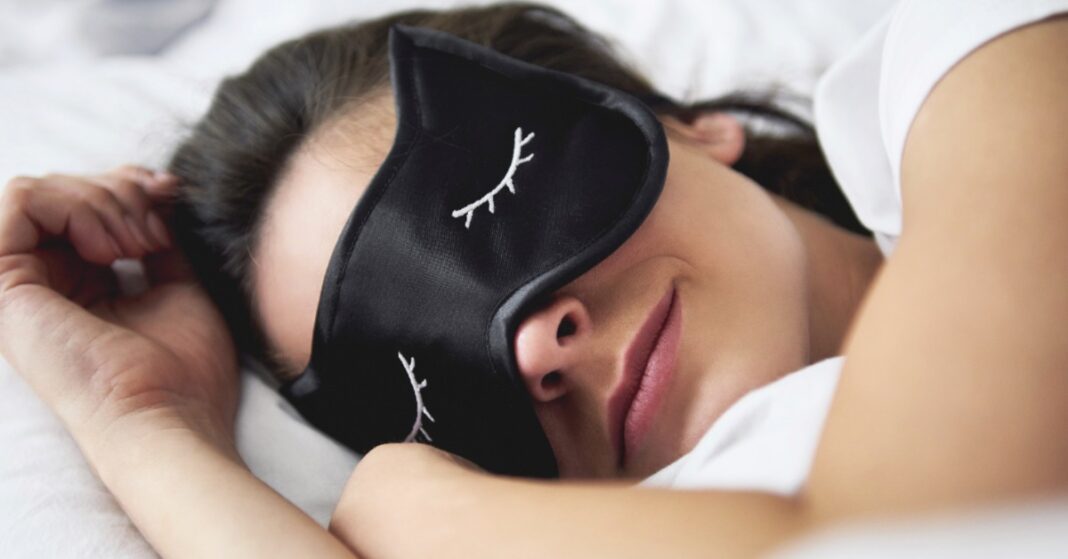Profound sleep is essential for our health and well-being. However, it’s no secret that many people find getting the rest they need challenging. Whether it’s difficulty falling asleep, waking up frequently during the night, or waking up feeling groggy and unrefreshed, sleep problems can significantly impact our mood, energy levels, and overall quality of life. In this article, we’ll explore ten tips for getting good sleep that is backed by science and practical to implement. We’ll also debunk some common myths about sleep and share some surprising facts that might change how you think about getting some shut-eye. So, if you’re ready to improve your sleep and wake up feeling more rejuvenated, read on!
How To Sleep Better at Night?
Stick to a regular sleep schedule: Maintaining a consistent sleep schedule is key to ensuring a good night’s rest. Sleeping and waking up at the same time each day regulates your body clock, making it easier to fall asleep during the night and wake up feeling rejuvenated in the morning. Interestingly, your body’s natural sleep cycle is slightly longer than 24 hours, so avoiding getting out of sync with the clock is crucial. To do this, some experts suggest gradually adjusting your sleep schedule by 15-30 minutes each day until you reach your desired bedtime and wake-up time. This can help your body adjust more efficiently and avoid the grogginess associated with sudden changes in your sleep routine.
Create a relaxing sleep environment: Your bedroom should be cool, dark, and quiet. Consider using blackout curtains or window shades and add a dark eye mask, earplugs, or white noise machine to block out any distractions. Did you know that the ideal temperature for sleep is between 60-67 degrees Fahrenheit (15-19 degrees Celsius)? This range helps your body cool down, which is necessary for initiating sleep.
Limit exposure to blue light before bed: Blue light from electronic devices like phones, tablets, and computers can interfere with your body’s natural sleep cycle. Avoid using these devices for at least an hour before bed. Interestingly, it’s not just blue light that can affect your sleep. In fact, research has shown that exposure to red light in the evening can actually improve sleep quality and duration.
Avoid caffeine and alcohol: Caffeine is a stimulant that can keep you awake, while alcohol can disrupt the quality of your sleep. It’s best to avoid both in the hours leading up to bedtime. Did you know that it’s not just coffee and energy drinks that contain caffeine? Many teas, sodas, and even some medications (like headache remedies and cold medicines) also contain caffeine.
Get regular exercise: Regular physical activity can help enhance the quality of your sleep and make it easier to fall asleep. Aim for at least 30 minutes of light to moderate physical activity or exercise most days of the week. Just be careful not to exercise too close to bedtime, as it can raise your body temperature and make it harder to fall asleep.
Practice relaxation techniques: Activities like yoga, deep breathing, and meditation can help calm your mind and body, making it easier to fall asleep. Some studies have suggested that aromatherapy with lavender oil may also help improve sleep quality.
Don’t nap too much or too little: While a short nap can be refreshing, napping too much or too close to bedtime can disrupt your sleep cycle. Interestingly, the ideal nap length is 10-20 minutes. This is long enough to help you feel more alert and focused but short enough to avoid interfering with nighttime sleep.
Avoid large meals before bed: Eating a heavy meal close to bedtime can interfere with your ability to fall asleep and lead to discomfort during the night. If you’re hungry, opt for a small snack instead. While some foods, like turkey and warm milk, are often touted as sleep aids because they contain tryptophan, the amount of tryptophan in these foods is not enough to significantly affect sleep.
Consider a sleep aid: If you’re struggling with insomnia, talk to your doctor about whether a sleep aid might be right for you. However, be aware that many sleep aids can be habit-forming and may have side effects. Some natural sleep aids, such as melatonin supplements, may be helpful for some people. However, it’s important to remember that these supplements are not regulated by the FDA, and their safety and effectiveness are only sometimes well-established.
Manage stress: Stress and anxiety can make falling asleep and staying asleep difficult. Consider practicing stress-reduction techniques like journaling, talking to a therapist, or engagingin relaxing activities like reading or listening to calming music. Did you know that certain scents, like lavender and vanilla, may also help reduce stress and improve sleep quality?
Remember, everyone’s sleep needs are different, so it’s essential to experiment and find what works best for you. If you’re struggling with sleep, try incorporating some of these tips into your routine and see how they affect your sleep quality. Getting a good night’s sleep is so important for your overall health and well-being, that it’s worth putting in time and effort to establish healthy sleep habits.
In conclusion, getting a good night’s sleep is crucial for us, and by implementing these 10 tips, you can establish healthy sleep habits and improve the quality of your sleep. Remember, the key is to prioritize sleep by creating a relaxing sleep environment, maintaining a consistent sleep schedule, and practicing relaxation techniques. Additionally, be sure to avoid stimulants like caffeine and technology before bedtime and aim to engage in relaxing activities like reading or taking a warm bath. Lastly, remember to experiment and find what works best for you, as everyone’s sleep needs are different. By making these small changes, you can set yourself up for restful and rejuvenating nights, leading to improved productivity, mood, and overall well-being.
